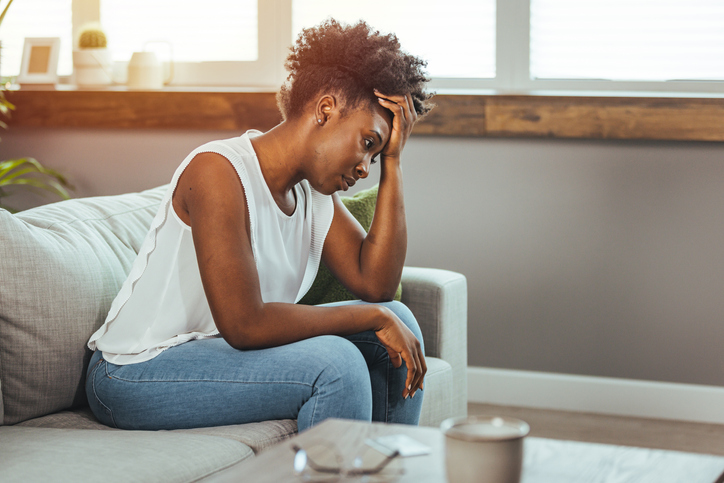Hypothyroidism and Depression
Many women are on thyroid medication at Menopause, but did you realise that thyroid also can affect your mood?

Although they’re separate diseases, depression is sometimes a symptom of hypothyroidism. That’s when your thyroid gland doesn’t make enough thyroid hormone.
I hear from a large number of women at menopause who are on medication to help with thyroid issues, and many have found improving their progesterone levels can help improve their symptoms, including depression.
What are the symptoms?
The two conditions share so many signs that doctors sometimes overlook the possibility that someone who is depressed may also have low thyroid levels.
If you have hypothyroidism, you may have fatigue, sluggishness, and trouble concentrating. You may sleep too much, too and certainly all of that may cause you to feel depressed.
At the same time, you could also have:
– Slower heart rate
– Sensitivity to cold
– Joint or muscle pain or cramps
– Tingling in your hands and fingers
– Vague aches and pains
– Modest weight gain
– Constipation
– Dryness or yellowing of your skin
– Brittle or thick nails
– Hoarse voice
– Swelling in front of your neck
– Hair thinning or loss
– Menstrual period changes
Linking hypothyroidism with depression
If you have symptoms of depression it is very helpful to ask your doctor to check if your thyroid is involved and to test you for thyroid disorders.
Blood tests can confirm if they show low levels of a thyroid hormone called thyroxine and a high level of one called thyroid-stimulating hormone (TSH).
Studies show that if you have both hypothyroidism and depression, thyroid-replacement medications may work better than antidepressants.
They boost levels of two major thyroid hormones: triiodothyronine (also called T3) and thyroxin (T4). When thyroid pills lower TSH levels, you may start feeling better.
Helpful information:
As progesterone supports thyroid function, being low in this hormone can mean you could help yourself by boosting your thyroid levels naturally.
In cases of continuing depression it is best to consult a doctor but there may be an answer in your diet, as changes there can often help.
https://anna.blog.wellsprings-health.com/how-to-lift-your-spirits-and-balance-your-mood/


















